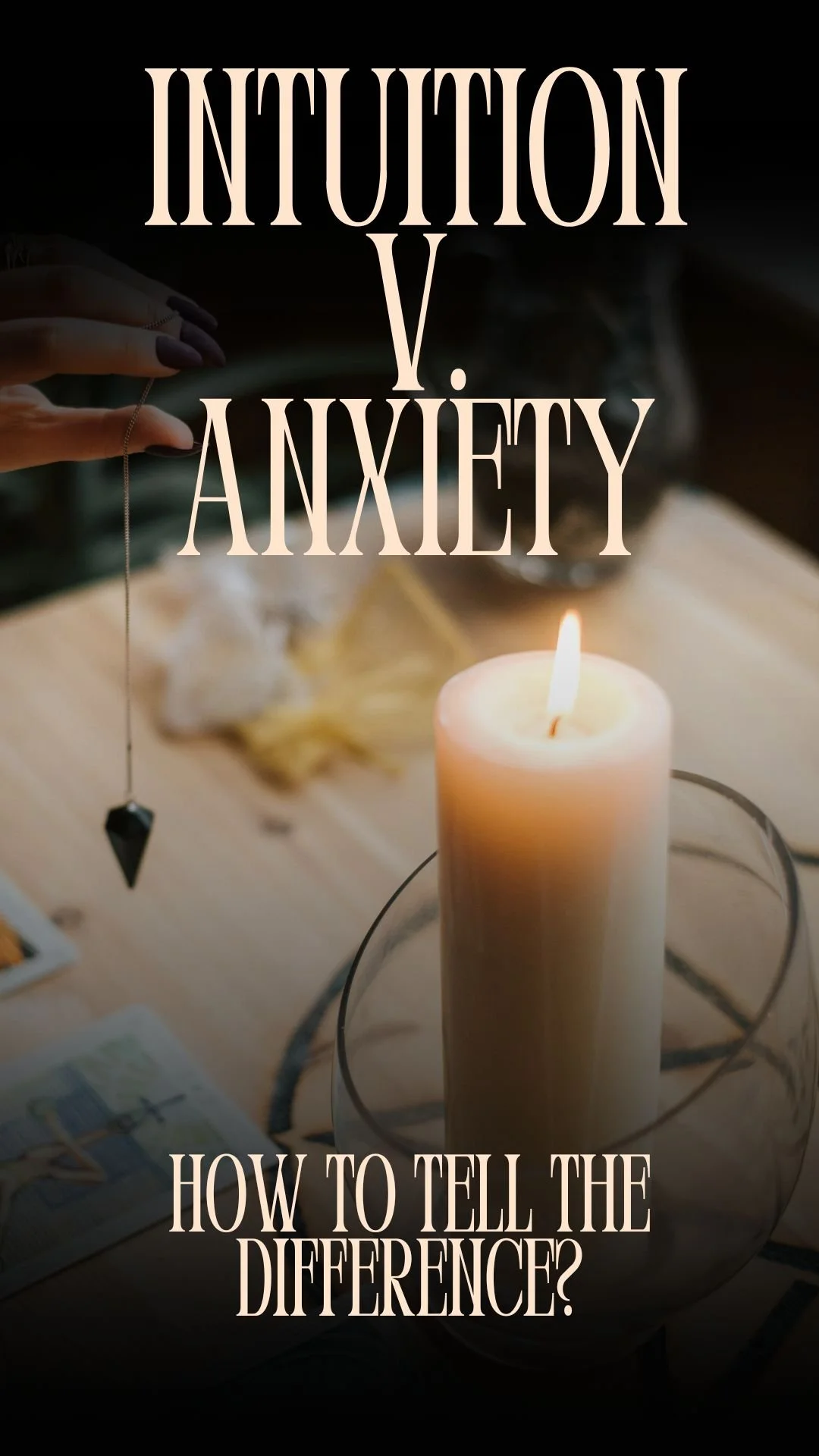How to tell the difference?
Let’s start at the beginning.
What does intuition mean?
Intuition is often referenced, but many people find it difficult to define clearly. Intuition often manifests for people as a gut feeling about something, and they later realize the message.
But what is it, really?
It’s the ability to understand or know something without the need for conscious reasoning. That sudden gut feeling you get about something being right or wrong, even without evidence, is likely your intuition at play.
Research shows that intuition stems from subconscious pattern recognition. It’s a skill we all possess and can develop further with practice.
Intuition is information that comes to us without conscious thought. It’s the feeling you get when you know something is right or wrong before the facts are laid out. In more practical terms, Carl Jung, a well-known 20th-century psychologist, viewed intuition as one of the fundamental ways we perceive the world, describing it as our ability to pick up on patterns and information that we aren’t consciously aware of. It’s a pattern-making process that sifts through the unconscious mind that creates those “feelings.”
From a spiritual perspective, intuition is our direct connection to the unseen realms—the spiritual world, our higher selves, or divine guidance. It’s a subtle voice that speaks through feelings, sensations, and sudden flashes of insight.
Intuition is a skill that can be honed through awareness, practice, and trust.
My intuition has saved me more than once from bad situations. I remember one time I was at a conference when I met a man with stone-blue eyes. When I shook the man’s hand for the first time, I knew intuitively that the smile he was wearing wasn’t genuine.
A little voice in my mind said,
“This man is broken and dangerous.”
I avoided that man for the rest of the conference.
Intuition
vs. Anxiety
The following year, when I returned, I learned from other attendees that the Stoney blue-eyed man had stolen money, vandalized property, and verbally harassed FOUR people at the conference last year. I was not surprised, but I was astounded that he could manipulate four different people to help him, only to backstab and betray them!
While everyone has access to intuition, many people ignore it or second-guess its guidance. We’re often conditioned to rely more on our rational mind than our intuitive sense, which can cause us to miss important insights. However, learning to trust and develop your intuition can serve as a powerful tool for navigating life.
Intuition vs Anxiety: How Can You Tell the Difference?
One of the most common challenges people face is differentiating intuition vs anxiety. Psychologists explain that both may trigger internal signals but come from different places. Anxiety is rooted in fear and can feel chaotic and overwhelming. It urges you to avoid or fix something immediately, often leading to overthinking (Well+Good).
Intuition, on the other hand, presents as a calm, knowing feeling. It doesn’t pressure you or create a sense of panic. Instead, it offers gentle guidance that aligns with your core values.
Learning to distinguish between these two is crucial for making sound decisions. A great way to practice is by tuning into how each makes you feel. Intuition is often a quiet nudge, whereas anxiety screams for attention.
Intuition vs Instinct: Are They the Same?
Another question you might have is about the difference between intuition and instinct. While these two can seem similar, they come from distinct areas of the brain. Instinct is primal and automatic, often triggered by survival situations. It’s your immediate reaction to danger—like pulling your hand away from a hot surface or feeling hungry . (PsychMechanics).
Intuition, however, is more refined. It’s built on the subconscious processing of past experiences, allowing you to recognize patterns and make decisions without needing all the facts upfront. Instinct often results in physical reactions, while intuition is an emotional or mental response, giving you insight without immediate action.
Psychologists highlight that intuition can provide quick insights when decisions need to be made with minimal information, whereas logic requires time to break down and evaluate details. The key is to use both—letting intuition guide you when information is incomplete and turning to logic when you need deeper analysis.
Whether making decisions or seeking guidance, you must learn to connect inward for your personal and spiritual growth.
How to Strengthen Your Intuition
Intuition is like a muscle—the more you use it, the stronger it becomes. Here are a few ways to develop this skill:
✓ Listen to Your Body: Pay attention to the physical sensations that arise when making decisions. Your body often communicates intuitive messages through these signals.
✓ Trust Your First Impressions: Your intuition often speaks first, before your rational mind takes over. Start trusting the initial feelings or thoughts when faced with a decision.
✓ Take an Intuition Test: Wondering how developed your intuition is?
Try an intuition test to understand how often you listen to and trust your inner voice.
It’s time to trust your inner knowing and develop the skills to navigate life confidently.
If you’re ready to strengthen your intuition and deepen your spiritual practice, t
he Intuitive Development Membership is here to support you.
The membership is perfect for beginners and seasoned practitioners ready to take their intuitive skills to the next level. The Intuitive Development Membership offers ongoing support and guidance to help you grow your intuitive gifts. You’ll learn to trust your inner voice and connect more deeply with the spiritual realm through monthly exercises, group discussions, and spiritual tools.



